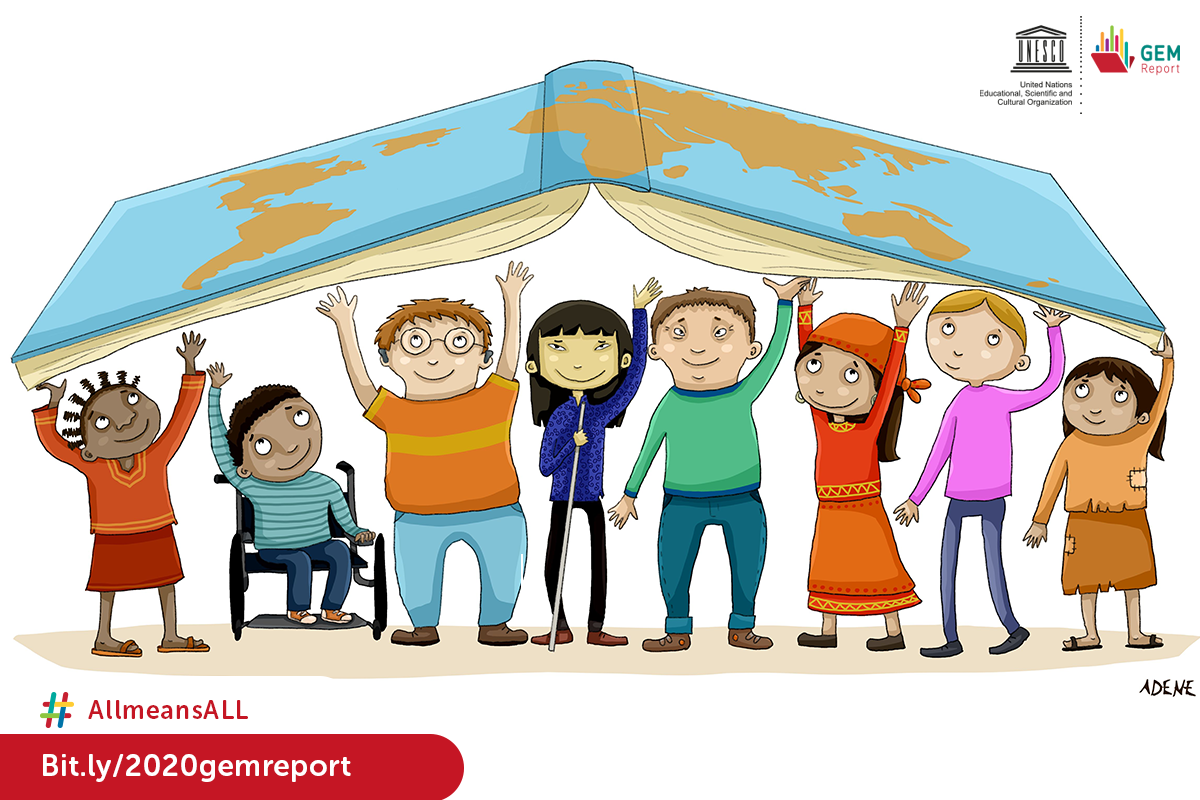The Agency hosted a seminar on two recent UNESCO Global Education Monitoring (GEM) reports on 26 May. This was part of the Agency’s spring bi-annual meeting of member country representatives.
The seminar provided an overview of the findings of the 2020 GEM Report and the 2021 Regional Report for Central and Eastern Europe, Caucasus and Central Asia, which both have the theme of inclusion and education. The Agency collaborated on the Regional Report alongside UNESCO’s GEM Report Team and the Network of Education Policy Centers (NEPC), which were both represented at the seminar.
Manos Antoninis (Director of the GEM Report), Lana Jurko (Executive Director of NEPC) and Verity Donnelly (Senior Project Officer at the Agency) presented an overview of the GEM reports, including:
- the GEM mandate – to monitor progress in education towards the United Nations’ Sustainable Development Goals (SDGs), particularly the implementation of strategies to achieve SDG 4 on quality education;
- the reports’ main findings;
- the reports’ 10 recommendations to help policy-makers achieve the SDG 4 targets by 2030;
- additional GEM resources available to policy-makers, such as the Profiles Enhancing Education Reviews (PEER) online platform and the World Inequality Database on Education (WIDE).
The seminar then focused on the experiences of two countries involved in the Regional Report. Anamarija Viček, Secretary of State for Education in Serbia, and Ulviyya Mikailova, an Inclusive Education Consultant from Azerbaijan, described collaborating on the report. Working on the report allowed comparisons to be made between countries, which highlighted achievements but also gaps in policy for inclusive education. They explained how the process enabled them to identify aspects that need more work in their countries and across the region.
Finally, the seminar examined the reports from the Agency’s perspective. Amanda Watkins, Assistant Director of the Agency, explained that many of the challenges the reports identified are common to numerous Agency member countries. Future Agency work is likely to examine several of these aspects, such as the lessons learned from the COVID-19 pandemic and issues around governance and funding. The Agency’s challenge will be to take the ‘what’ – the evidence and information gathered in the Regional Report – and use it to develop the ‘how’ – how countries and policy-makers can use the information to make positive steps towards more inclusive education systems.
More details on the GEM Report, the GEM Regional Report and the bi-annual meeting are available on the news pages.
